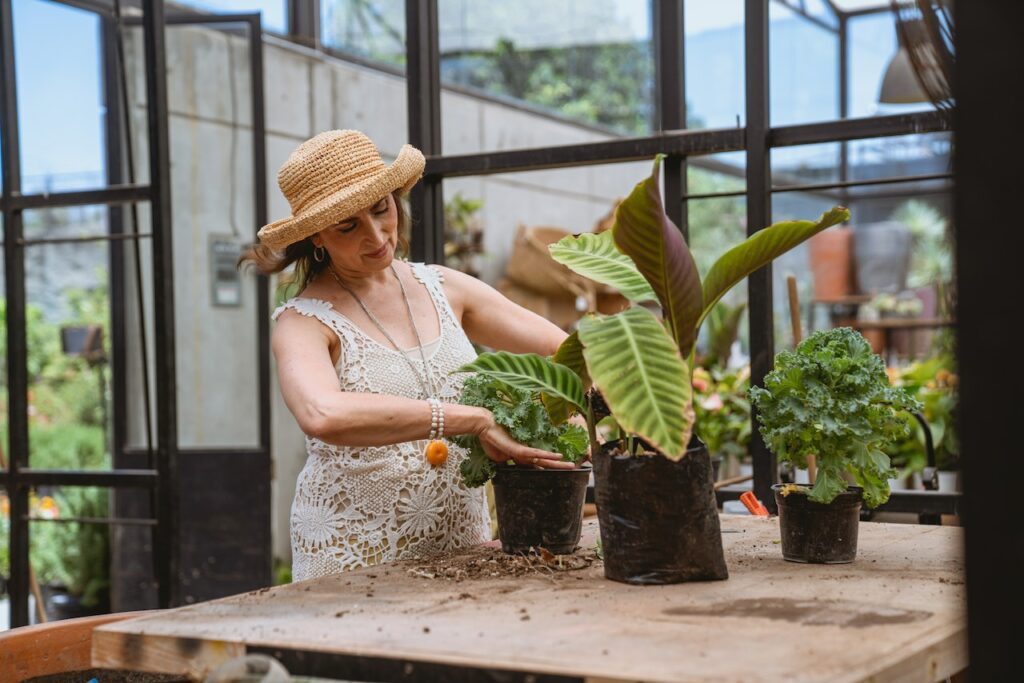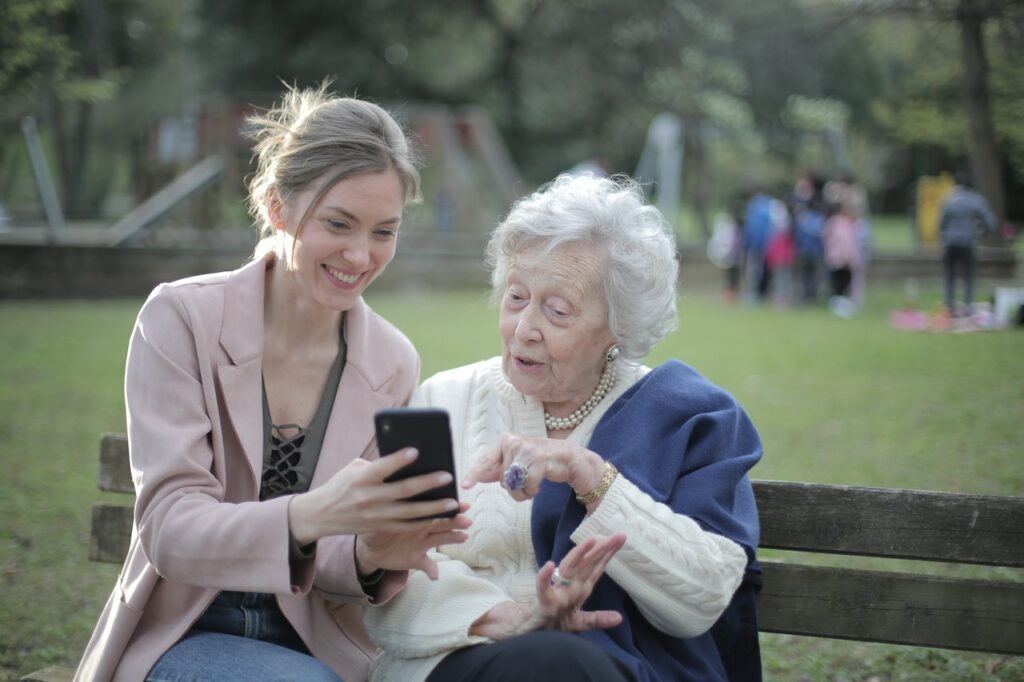The golden years are when retirees may finally rest and enjoy their hard work. This era of life has its pros and cons. These drawbacks, often neglected, may have a major impact on seniors’ mental and emotional health, changing our idyllic view of retirement.These topics must be addressed to prepare future retirees for the less-discussed parts of this life change. They may suffer from a loss of professional identity, solitude, financial hardship, and a lack of daily routine or cerebral stimulation when they enter retirement.
As Carl Jung said, “We cannot change anything unless we accept it.” Accepting retirement’s drawbacks is the first step to a happy and balanced retirement. This post highlights the eight most major yet under-discussed downsides of retirement, enabling healthier and more educated transitions into this key life period.

Routine Change
Work gives us structure and meaning. Retirees have plenty of free time. This increased independence may be exhilarating, allowing leisure and personal activities. However, without a timetable, weeks might pass.
Unstructured time requires new strategies to give our days significance. It requires people to plan their time and energy instead of letting work control them. This might include hobbies, volunteering, social clubs, or part-time job in a particular interest.
Retirees must rebalance their lives without employment. Without a job, balancing leisure, pleasure, exercise, socializing, and personal improvement is hard.
Retirement requires a schedule that maintains physical health, emotional well-being, and cerebral stimulation. This may include exercising regularly, reading, and meeting with friends and family. It’s about living a healthy, happy life.
Readjusting to retirement demands mental and emotional strength. Work gives regularity, identity, and purpose to many. Losing something might cause grief.
Counseling, support groups, and mindfulness methods may help you cope. It’s natural to feel various emotions during this transitional moment, and requesting assistance isn’t a show of weakness.
Profession Loss
Professions define many individuals. They may present themselves as teachers, engineers, lawyers, or nurses, indicating that their employment defines them. Retirement changes self-perception.
Retirees may feel lost without their professions. If they value their career, they may also struggle with low self-esteem. Retirees sometimes feel insignificant after leaving their employment.
Retirement lets people reinvent themselves. Retirees may pursue their interests and develop a self-identity outside of work. Liberating yet difficult.
Redefining self-identity may entail discovering hidden interests and taking on family obligations like grandparenting or volunteering. Self-discovery requires reflection, investigation, and perseverance.
Losing a professional identity may hurt. Retirement brings grief, fear, and loss. Some grieve once their careers expire. Having friends, family, and mental health specialists around may help. Retiree clubs foster community and understanding. Mindfulness and relaxation may reduce stress and improve mental health.
It’s important to remember that these sentiments are normal and that with time and the correct tactics, you may establish a new, rewarding identity in retirement.
Social Exclusion
Our social relationships are vital. They promote mental health, give emotional support, and may even extend life. Many people’s social engagement comes from work, including informal talks, team initiatives, and social occasions. Retirees must discover new methods to remain connected when their natural social network shrinks.
Retirement loneliness might result from less social connections. Several studies have linked loneliness and social isolation to cognitive decline, depression, and heart disease. Retirement’s hidden drawback is loneliness.
Loneliness must be recognized and addressed. Reaching out to friends, relatives, or community resources for seniors may help. Retirement affords the chance to make new friends. Volunteering, joining organizations or groups that match interests, engaging in community events, or attending senior courses may achieve this.
Technology may reduce social isolation, particularly for people who live far from their relatives. Video conversations, social networking, and online organizations help seniors make pals.
Building new social networks takes time, but it’s crucial to retirement happiness and quality of life.
Health Issues
Aging causes bodily changes that affect life quality. Seniors may struggle with decreased strength and stamina, visual and hearing impairments, and chronic ailments including heart disease, diabetes, and arthritis. These changes are normal with age, but they may disrupt a retiree’s life and need lifestyle modifications and more medical care. Understanding and embracing these changes is the first step to managing them.
Health issues may make retirement difficult. Medical visits, drugs, and treatments may increase every day. Retirees should contact doctors and live a healthy lifestyle. This includes a healthy diet, exercise, sleep, and regular checkups.
Technology also aids health management. Health applications and gadgets may monitor vital indicators, remind about prescriptions, and provide telemedicine consultations.
Health issues have physical and mental effects. Declining health causes stress, worry, sadness, and loss. Such sentiments may lower motivation, self-esteem, and quality of life.
Emotional management is key. Psychologists, counselors, support groups, and friends and family may assist. Mindfulness and relaxation may reduce stress and improve mental health.
Finally, retirement health difficulties need physical and mental strength. With the correct tactics, support, and mindset, these problems may be overcome for a joyful and healthy retirement.
Financial Stress
Retirement expenditures might be underestimated for several reasons. These include underestimating living costs, inflation, healthcare bills, and financial crises. This mistake may reduce retirement funds, generating worry and anxiety.
Reassessing and revising one’s retirement budget to cover these unexpected expenditures. Trimming non-essential spending, managing finances better, or investigating additional revenue streams may help. Realistic financial expectations and preparedness are crucial.
Retirement financial shortages may cause ongoing stress and concern. These problems necessitate comprehensive solutions.
This may entail getting financial counsel, cutting spending, or finding methods to make money, such as a part-time job, renting out a room, or monetizing a hobby. It may need major lifestyle adjustments, like downsizing a house. Retirement financial hardship requires rethinking financial strategy. Reevaluating long-term financial planning is needed. It may include rethinking retirement account withdrawal rates, investment alternatives, and tax reductions.
Financial advisors may give a new viewpoint and skilled advice customized to your circumstances. They may review risk tolerance, reallocate assets, and perhaps identify better methods to manage and prolong retirement funds.
A financial strategy may permanently be changed. Being proactive, creative, and adaptable may help you overcome financial hardship and protect your retirement.
Mental Stagnation
Retirement means leisure, travel, and relaxation. Mental stimulation is sometimes ignored. Work keeps our minds busy and agile while providing revenue. Retirement may cause cognitive deterioration, emptiness, and mental health challenges. Understanding these problems and finding solutions to stay mentally engaged is essential for a sound retirement.
Aging causes cognitive impairment in memory, attention, and thinking speed. Retirement may accidentally overlook brain stimulation, which can speed up this process.
Recent research links lower cognitive engagement to quicker cognitive deterioration. Because our brains work on the “use it or lose it” concept, without frequent challenges and stimulation, our cognitive reserves start to deplete, possibly accelerating cognitive decline and increasing the risk of dementia and other cognitive illnesses.
Retirees may feel intellectually empty without employment demands and routine. Problem-solving, strategic thinking, and ongoing learning are substituted with less brain-stimulating chores. This gap may cause restlessness, boredom, and sadness.
Finding things that stimulate the brain, like some side jobs, might fill this intellectual gap. Anything that promotes learning, problem-solving, and strategy. If you’d like to gain insight into this, I highly recommend our post on 7 Side Gigs Retirees for Retirees With No Extra Skills Required!
Retirement offers several methods to keep the mind busy. Here are some options I love:
- Lifelong learning: Retirement is a great time to study. Online courses, community classes, and workshops in several subjects are accessible.
- Reading: Books, newspapers, and journals provide enjoyment and mental stimulation.
- Volunteering: Helping others while being intellectually engaged may be gratifying. It offers fresh learning and networking opportunities.
Regular exercise improves the body and mind. It improves mood, stress, and cognitive performance.
Social interaction: Socializing stimulates the mind. Joining clubs, community activities, or spending time with friends and family are all great examples.

Relationship Stress: a Huge Retirement Challenge
Retirement changes lifestyles and relationships. This transformation may strengthen relationships but can cause conflict. Suddenly, those who were used to work schedules are spending more time with their spouses or families. This adjustment may strain relationships unexpectedly. Understanding these obstacles and implementing measures to improve interpersonal dynamics might assist in navigating retirement.
Retired couples frequently spend more time together. This quick change might interrupt habits and make people feel crowded. If the retiree lives with other family members, similar dynamics might occur.
These changes need patience, flexibility, and communication. It may entail balancing shared and individual activities, establishing personal areas in the family, or adopting new routines that respect everyone’s needs and preferences.
Increased time together might reveal relationship difficulties that were simple to overlook during hectic working years. Retirement expectations, finances, health, and the stress of such a major life shift may exacerbate friction.
Open communication about needs, expectations, and concerns helps manage these stresses. Professional counselors and therapists may assist facilitate these dialogues and resolve disputes.
Enjoying retirement requires good interpersonal dynamics. Build trust, respect, and collaboration. Finding same hobbies may also bring couples or families closer. Travel, gardening, volunteering, or learning a new skill together are examples.
Respect each other’s demands for personal space and unique activities. Encouraging one other’s hobbies and interests may boost self-esteem and reduce congestion.
Maintaining a wider social network also helps. Friends, groups, and community activities may help relieve family stress.















54 Responses
Are there high paying jobs for seniors with a business background???
I’m only interested in work if it’s worth my time, I have more then enough to keep me busy in retirement.
I retired early. It’s been better than I expected. Financially doing great, health is ok and I enjoy working out. I’m very happy. The days fly by so much to do, learn, read, building another new house. I cook every day, and that takes up a good amount of time- planning a menu, figuring what’s needed, shopping, gathering recipe ideas, prepping, cleaning, I’m a foody trying something new all the time love cooking… reading financial and world news, expensive hobbies and interests. No two days are alike I get up early and go to bed late cause there is so much great stuff to learn and do. A couple thousand $$ a month part time would help toward expanding my hobby interests. Thanks for your thoughts where I might learn about high paying jobs for seniors! Thanks!!
You sound like quite the catch lol are u single lol
What can I do to pass the time I am so bored I don’t have any friends I am lonely now that I’m retired how do I pass the time
Hi, David:
I get the boredom issue. One of the things I did was buy a nice camera and lenses and took photography classes. There are groups for different hobbies that may interest you – or at least check out to see if there is an interest. Mine are photography and geology and joining other rock hounds just out searching for different things to either photograph or find an interesting rock. Being outside and enjoying all the wonderful things that are in our environment are amazingly refreshing and satisfying for me; hence the 2 hobbies I enjoy.
Groups are a great way to be with people and enjoy things that make you happy. And to possibly discover a new hobby and friends – or at least acquaintanses along the way. Enjoy the journey.
Hey Bonnie, I did that too and incoporated the photography into my travel adventures. My travel, photography, and language courses keeps me hyped up for the next adventure. Immersion into the language is a very good learning experience as I have to shop at grocery stores in a foreign language, count in their language, order food at restaurants in their language and take public transport in their language.
Hi David: I have a few suggestions. If you have a public library and/or a historical society in your area, ask if they have programming that might be of interest to you. If you have skills or other knowledge that you could share by presenting a program at either location, make contact and see if there is an interest. Before my retirement I worked in a public library, and I was always on the lookout for programs for adults to enjoy. You might be surprised by the subject matter which could include history, cooking, crafting, painting, and book discussion groups, just to name a few.
One other suggestion: if there is a community center nearby where you can exercise, swim, play pickleball, and walk indoors you might find new friends through participation. I wish you well:)
I feel involvement in community a benefit mitigating several of the disadvantages . Healthcare (or lack of ) is my biggest concern.
Volunteer. What did you do for a living? Is it a teachable skill? Perhaps you could offer a class at the local community college, teach disabled vets, teens, scouts…there are so many folks in need. Go to church. It was not for us, we being less social types but my husband needs more contacts so he volunteers with Veteran groups. What you give in the world, comes back to you in multiples and after a lifetime, I am sure you have so many skills, so much knowledge, to offer. Start small, in your area. You might be surprised to find you are not the only bored, lonely person there so don’t be afraid to reach out. Maybe a part time job, a few days a week. If you have crafting skills, try Linked In to contact others or sell things on a website. If you like to read and have some books to exchange try Bookmooch.com or Paperbackswap.com. Good luck.
Thanks . I don’t know if someone knows about government help?
Cj, excellent recommendation. There are so many needs out there. If you have a skill, volunteer.
Me too!
Hi! Dan DeCosta Here,, Go and make friends, maybe reacquaint yourself with neighbors? find a hobby an interest, there are soooo many.. I enjoy walking, biking and yoga, not all 3 in one day but yoga and one of the other 2 to start my day,, i have learned several new Recipes the last 2yrs. some times i will spend hrs reading a book of choice, some times followed with a nice nap.. i like to camp with a small camper, fish, hike and or Ebike for the longer trails.. for me Exercise is a great start to the day, get that body moving, we were NOT made to sit around.. good luck.
Hey there you are valuable, see if there is any volunteer work around . Nothing like the rewards of giving of one’s self . Plenty of part time work out there !! lol the younger generation doesn’t want to work lol Don’t get down on yourself. Move a muscle change your thoughts. Going to the gym just light exercise creates endorphins you’ll get invigorated to do more !! Isolation enjoys Misery, get going your Worth It 🤓
Me too. Plus I have a neurological disease that heals left me unable to walk or speak loudly enough to be heard by failing hearing. What suggestions do you have for someone in my position? We dont have even one single friend in the state we relocated to for retirement. Plus our total income is 2000 a month.Help!
Try Painting. Lots of Tutorials on You Tube. Listen to Health Podcasts or other topics that would interest you.
Do crossword puzzle games and other online computer games on your laptop or your cellphone.
Hi David Hansen are you the man I met at Lydick United Methodist I can be your friend
I’m trying to relearn my art and love playing video games on Facebook. I’m always riding
my bike except in cold days like now.
Take a foreign language course. It keeps the mind sharp, you meet many intresting people and you travel all over having interesting adventures.
Hi David,
I found that in retirement, one needs to stay active. I am 77 and I am active with daily walks in the park and moderate weight lifting 3-4 times a week. Dusted off my guitars and started improving my playing. I read almost daily books, watch the news, and watch Netflix movies. Learned also to bake my own sourdough bread and find this very enjoyable. My work was director of R&D for major cosmetics companies and yes, I do miss my work at times. The most important is to never give up.
David Hansen – I just retired for the second time. First time was 5 years ago and I realized I had ‘more gas in the tank’ and started consulting then on to a full time job. I learned that we own our retirement and where we may have previously had an employer with responsibilities that demanded our time and attention as well as provided a structured environment with peers and fellow workers, retirement is ours and we dictate what we do and how we do it. I started planning my second retirement months ago and planned on having two volunteer positions and I’ve ended up with four. I’m busy and there’s structure, association with others where I can use my 45 year professional experience as well as engage in work related to one of my hobbies. I’m planning my days and weeks similar to the way I planned my days and weeks while I was CFO. Continuity of process will help. Own it and then do it realizing that we can control the pace and intensity unlike what we had while we were working full time.
Dance. It provides music, exercise, and social interaction. It lengthens life span and provides purpose. It is also inexpensive. The biggest “key” is to learn to dance by listening to the drum. Our foot steps in time with each (major) beat of the drum. It’s that simple. A few simple lessons can be fun too.
Truth!
VOLUNTEERING IS A JOY IN MY LIFE. JOIN A SENIOR CENTER .
My suggestion would be to look up Senior Core in your area. They will interview you and help connect you with others based on your interests and abilities. Some are volunteer opportunities and others may have pay.
David, if your time and budget allow, you can adopt a pet. This can provide you with unconditional love and attention and save the life of an animal in a shelter close to you. Take good care.
We have done that this week and what a godsend to my husband, who is also my caretaker!
I retired at 67, and love it! While I was working full time as a secretary/office worker, I had outside interests – joined volunteer choirs, participated in theater groups, did art projects, sewed costumes and formal gowns or re-made existing ones to look different. Now I have much more time to do all of those things, and I can select what I want to spend more time on. Presently, I am still singing in choral groups, also taking voice lessons (you’re never too old!), still sew and create costumes, joined an English Country dance group, work on miniatures and dollhouses, and help friends and family in need. I also love to cook and bake, and improve recipes as I go. Both my husband and I volunteer ushering for musical events, too. During COVID, we had time to improve things around the house – we put in a patio in the back yard, and had the landscaping in the yard improved, so we could enjoy meals outside in the summertime. I even made cushion covers and patio tablecloths to enhance the looks of our patio. My husband has a real knack for landscaping. When we first moved in 39 years ago, there were no trees in the front yard. Now we have a small forest of all kinds of trees, and it’s SO refreshing to be out there in the summertime. I’m also thinking of writing my memoir – I have so many stories of my life to tell! In short, I’m totally enjoying my retirement life!
If alone get a Golden Retriever.
No fall backs yet!! Still feeling great after eleven years of retirement and still going strong!!
Get a Domino group or Card Game twice a week Monday& Fridays with four or more also discuss new ways of living and enjoying your retirement also you can have Bible Study by Learning who and why the Lord care’s for all of the world Amen!!!!
You’ve just hit the most hot spots and I admit that Profession Loss is most heartfelt to me
I retired in 1992 with “faculty emeritus” honors from the University of California San Diego. I continued my creative work as a motivation consultant, mentor and coach until relocating to Arkansas in 2006, where I have continued sharing my creative talents with the local university and community. My bride (Edna) and I hit the golden bonanza when in we were able to sell our San Diego home for an unbelievable price, pay cash for a new one in Arkansas twice as big, furnish it, add 2 new cars and put away a healthy nest egg. Our home is beyond our wildest dreams, and we have basked in the glory of traveling with each other to our professional meetings, cruising and returning to California to visit family and friends, until Covid struck. However, this 2-year period of isolation enabled Edna and I to know each other better than ever before while tending to our back yard garden, enjoying the fall leaves turn brown and fall to the ground and watching CNN (when it wasn’t watching us [yuk-yuk-yuk]). Amidst all my good fortune in Arkansas, I have experienced a cultural condition I was warned of by former Arkansas natives concerning the inability of southern communities to roll out the welcome mat to folks from outside the south. Meanwhile. I continue my life’s passion for sharing joy and enthusiasm with those I’m able to influence, to the tune of: “Teaching others to love themselves is the greatest thrill of all!!”
Lets not leave out dementia and the stress caused by the care giver as it can be the husband or wife.
I just lost one hour’s work on a reply I will attempt entering again! I retired with the honor of “faculty emeritus” from the University of California under “golden handshake” conditions in 1992. I then continued my creative work as a lecturer, consultant, mentor and sports motivation coach sharing positive lifestyle habits. In the summer of 2006, my bride (Edna) for 61-years, and I opted to leave San Diego and established a “rodent connection” in White Hall, Arkansas.; i.e. We left the rat race of California, to a brand-new home on Chipmunk Drive, where the squirrels gobbled up the seeds in our bird feeders, and then discovered an armadillo roaming underneath our front yard grass. We struck the bonanza gold when we were able to sell our San Diego home, bought in 1967, for an unbelievable price and make a cash purchase of one twice as big, furnish it, add 2 brand new cars and bask in the glory of living in a home beyond our wildest dreams. For 15 years we enjoyed traveling to each other’s professional meetings, cruising, return visits visit family and friends in California and on selected road trips to games played by University of Arkansas Pine Bluff athletic teams I worked with as a volunteer team motivation coach from 2006 to 2019. However, due to Covic conditions, Edna and I used the past 2-years getting to know each better than ever before, tend to our back yard garden, enjoy the leaves turn brown and fall to the ground and watch CNN (when it wasn’t watching us [yuk-yuk-yuk]). Yes indeed, our move to Arkansas has been very very good for us! However, amidst all the good vibrations, I have had to adjust to a cultural condition several of my native Arkansas friends and colleagues had warned me of prior to relocating here. The reality of things is southern communities do not often throw out the welcome mat for folks moving into town from areas outside the south. While I have been unable to affiliate with the local university to continue my academic feats of excellence, I have heeded the lessons of my own kind, and hold no ill feelings towards those who have failed to recognize the nature of my valued talents. I mention this situation as advice for others, with legendary reputations, who may be considering pursuing the reduced economic conditions found in the south. Meanwhile I continue sharing the quality of my inspirational work to those I am able to influence to the tune of: “Teaching others to love themselves is the greatest thrill of all.”
I had a wonderful wife for 40 years. Unfortunately, she passed away 3 years ago after 10 years of living with Dementia. I was her 24/7 Caregiver. I’m now 73 and I’m still alone with 2 male friends back home to talk to. I tried online dating, Churches, the Senior Citizen center, and more. All I have to show for the last 3 years is nothing. I do realize my age is killing me as I think like I’m still 30 and won’t change that. The problem I have is I have never dated any woman over 27. I look at older women and think of my Grandma. I really don’t know what else to do to find happiness as I was out of touch with everyone for over 40 years. What to do that actually works?
I always keep myself busy doing things to relax my mind,
So True! All of it!!
These comments are all great for retirees who are able to continue to find new interests, but they do not address what happens if you live to great old age. I had no trouble with retirement, until now when I have had major family losses and am in my 90’s.
I have friends, much younger, I did give up driving, walk not too well with a cart, require a wheelchair for distances. I am involved with my computer business, live very close to loving family, just got a new pup, but there is still a lot of time when I can’t go for that walk, drive to a store, talk with lifelong friends who have passed, and have much reduced energy. I recently moved into a new home, so am doing some decorating changes, with hired help.
I feel like I am trying to re-adjust to this time in my life, but am not always successful, when I have to pass on so much that just a few years ago I could still do.
This year, I also started purchasing toys on line at auction, and just donated a truck load to a local charity, so I’m trying to find new ways to find happiness. But it isn’t always easy.
Excellent overview so comprehensive
Thanks
Have experienced most all mentioned. There is a video which lasts only eleven minutes that leaves us laughing on you tube. He talks about these changes and we laugh about them. The name of the video is…laughing…I cannot remember! Melanie 81 Ohio
Great article, l already do 90% of what is mentioned in the article. I am 77 years my problem is my hearing therefore l shy away from group volunteering. I do connect with friends.
Really good article, except you forgot to talk about spirituality. Whatever that means to each individual it’s very very important to flourishing in the third third of life.
Excellent article. As a society we would do well to conduct educational sessions prior to retirement on how to best plan for each. There is emphasis on finances but much neglect on the others. Thanks for getting the conversation started and providing suggestions.
Life styles may not get worse. It really depends on one’s own temperament. I worked as a Pastor with my husband. We occasionally supply preach but we also found a church, joined it and participate as members. Occasionally we do supply preach. However not often enough for it to be as burden,
I lost my husband 11 months ago. Financially for now I am making it. When I lost him I lost all his income. Now I am living on the life insurance and my earnings from last year. I have some in savings and a seasonal job which isn’t much. I’m very worried about making it next year and thereafter. Can’t enjoy anything since I try not to spend anything. If there is help out there I know nothing about it. I might add he left me with a lot of bills to pay for. Any suggestions for me other than bankruptcy.
If you are over 60 contact Social Security to see about survivor benefits. If you qualify, you can get a % of your husbands SS. Best of luck!
Great article. Good advice. I retired 9 years ago and for the first two years just traveled and relaxed. I always enjoyed playing poker and I took a class and became a dealer. I love it. The excitement is intoxicating. I also spend time with the grandkids and make sure to take a summer vacay with them while they still enjoy me. I also see them for school pick up once a week so that they see me regularly. It’s great. Play word games, exercise daily. Life is good.
This was a timely read that answered a lot of questions and concerns. It’s given me a new course and direction to take moving forward. THANKS
I think when your husband or wife has died living alone is not a cup of tea. Trying to find another mate your age if you are still quite active, bowling swimming walking that is very stressful
When I was in my early forties, I was forced to not work for two years due to a non-compete clause after selling a business. I had the time of my life, skiing two days a week with my wife, going on bike rides and playing tennis. I have been fully retired for 15 years and again I am having the time of my life. I ski, play tennis and pickleball several days a week with friends. I volunteer at a Thrift Store at least twice a month. I am on a non-profit and on a finance committee of the thrift store.
Everything that you say about retirement also applies to your working life if that is all one does.
This has happened to me.I feel worthless and upset,due to 6 back surgeries its hard to do most jobs or volunteering if you cannot sit.I can sit answer phones and i was the Chief Excutive officer to my company . I retired at 66. Then moved away to be near my grandchildren. I worked at one company for 35 yeas. I was a ten hat person ,did a lot of duties . I am so grateful now i had that wonderful career.. It as a very big adjustment for me. I did volunteer at a hospital for 4 and half years. I learned how to operate the Board with incoming patients. Then one day My lady head of volunteers asked me to run the out patient surgery center. It went well for me . I am the kind of person that wants to keep sharp and busy. I need a job volunteering putting papers together helping doing something constuctive
Very good article. After being retired for 14 months I started a new full time job. I am excited about the new challenges Iam facing. Thanks again for the article on retirement.
Great insight and advice.
This is eye opening read that has given guidance and support as I journey through retirement. Thank you .
Thank You for sharing this information on Aging. I Loved my Job, I had a reason too. It helped me to provide for my Family. I missed out on spending more time with my Children, I Regret that now. Life is too short. I know though I did the right thing, to be a Good Provider as a Good Father. Everything I read in your Article is Dead On ! I know now, I just have to work harder for myself to except the change and get through the final phase of my life. Thank you Again for your Important Information !